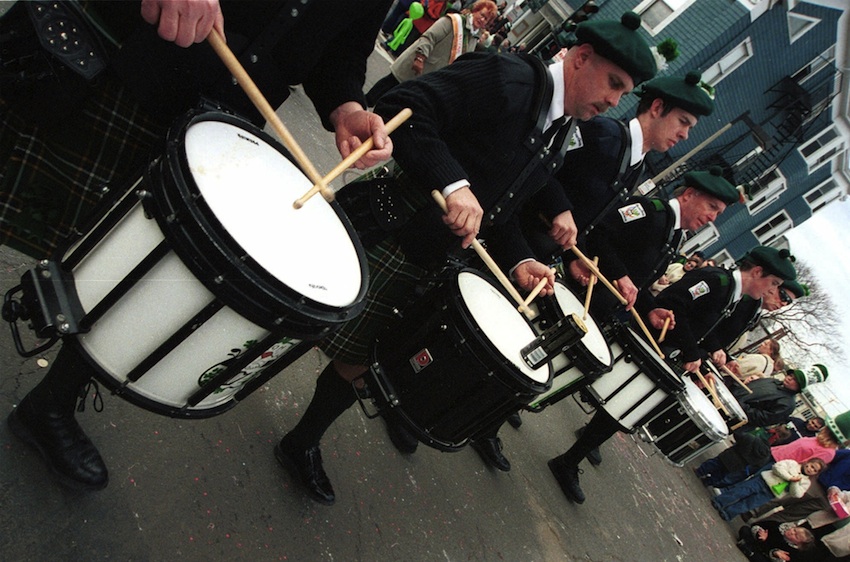St. Patrick’s Parade Organizers Will Allow a Gay Veterans Group to March

Associated Press
On Monday night, organizers of the St. Patrick’s Day parade approved an application by OUTVETS, a group honoring LGBT military veterans, to march in this year’s festivities, according to reports. After a near-deal fell through last year, the move seems to mark a breakthrough in the parade organizers’ years-long refusal to allow LGBT-affiliated groups from marching.
The dispute between LGBT groups and the Allied War Veterans Council, which organizes the parade, has never been as simple as “can gay people march?” According to parade organizers, anyway, it has always been about the manner in which LGBT people would be allowed to appear in the parade. Gays are welcome to march, and some do, so long as they don’t offend anyone by, you know, giving any indication that they’re gay.
Last year, a seeming breakthrough fell apart when parade organizers insisted that members of MassEquality could identify their organization name but not identify themselves as homosexual on their signs or clothing. Such display would not have “fit with the parade’s Irish and military themes,” apparently. MassEquality balked, the deal fell through, and Mayor Marty Walsh joined other leaders in refusing to march in the parade at all.
OUTVETS, meanwhile, seems to be speaking the parade organizers’ language this year. According to the Boston Globe:
In its application, OUTVETS said it included “LGBT veterans” and had no political or social agenda. They plan to march with a banner that includes symbols representing the military, the struggle of the gay community, and St. Patrick’s Day.
But by saying that they aren’t making any kind of political statement, the group seems to be making a political breakthrough. For the rights of LGBT groups to March has been a fiery issue since the Supreme Court upheld the parade organizers’ right to exclude LGBT groups on First Amendment grounds.
Before that, a lower court decision compelled the parade to accept LGBT groups. According to an Associated Press report from the time, “spectators lobbed smoke bombs and beer cans. Other spectators, some holding children, screamed obscenities and waved signs with such slogans as ‘AIDS cures gays’ and ‘Quarantine the queers.'”
That AP report reminds us that the motivation to exclude gay rights groups from the parade has not really been about tone or theme. It’s been about the bigotry of many of the parade’s constituents. Perhaps now, two decades later, Southie crowds will get a chance to redeem themselves.


